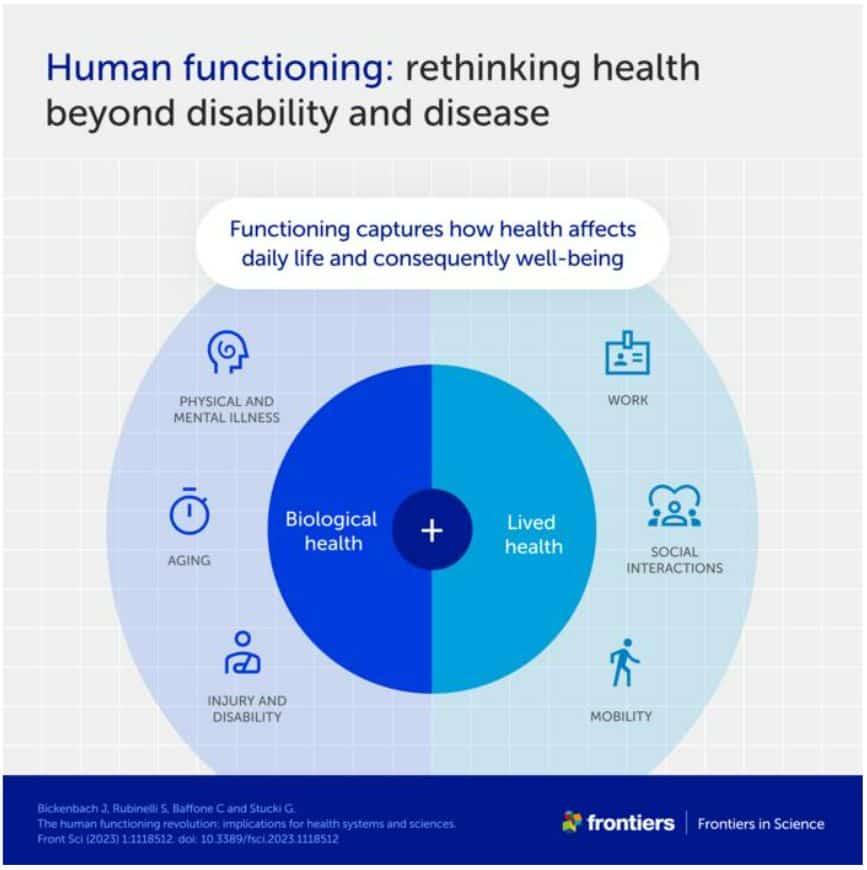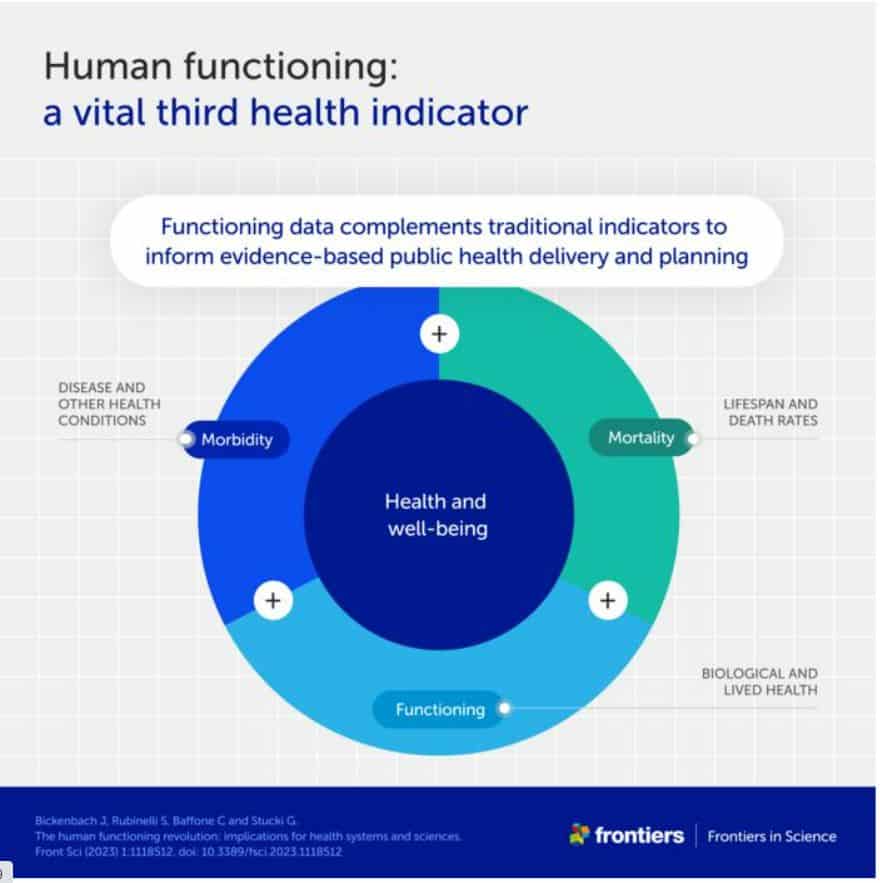There’s One More Aspect of Everyday Life Tied to Better Well-being
The term ‘well-being’ gained popularity during the Covid-19 pandemic, emerging alongside phrases like ‘lockdown’ and ‘quarantine’. It became evident that our well-being took a hit when we were unable to partake in activities such as walking, socializing, and working. Health transcended the mere physical state of our bodies and became intertwined with our capacity to engage in meaningful pursuits.
While this realization was eye-opening for many, the World Health Organization (WHO) had already initiated a paradigm shift in its approach to health. It introduced a novel concept and assessment framework called ‘human functioning’ to capture the multi-faceted nature of our everyday health experiences.
“Despite its great promise, this new tool has not been implemented widely in healthcare and policy.
And “Our team’s goal is to make it happen,” remarks Prof Gerold Stucki.
In an article published in Frontiers in Science, Stucki and colleagues introduce a groundbreaking framework that seamlessly incorporates the evaluation and management of human functioning within health and social systems.
Prof Jerome Bickenbach further emphasizes the transformative potential of this approach, stating, “We believe this approach can profoundly change health practice, education, research, and policy.”
Human functioning: bridging the gap between health and Well-being
Human functioning serves as the missing link that complements the traditional biomedical approach, introducing the crucial dimension of “lived health.” This facet of well-being encompasses an individual’s ability to partake in various activities, including independent eating, socializing, and work engagement. Recognizing the interdependence of our biological health and lived experiences, this approach offers a more comprehensive comprehension of human well-being.

The significance of assessing functioning becomes evident when considering mobility impairments. For instance, a person with disabilities may experience limited lived health due to physical environments lacking accessibility. However, by leveraging assistive devices and implementing modifications to the built environment, their functioning can be greatly improved.
“Functioning also clarifies how our health is linked to our well-being,” points out Prof Sara Rubinelli. “It isn’t just about the absence of disease, injury, or other physical issues, but also the ability to take part in daily life and achieve personal goals. Nurturing individual well-being on a large scale could truly transform our society, ultimately enhancing societal welfare.”
Human functioning data complements morbidity and mortality measurements
To realize this vision, the team has devised a comprehensive strategy to integrate a standardized assessment of functioning into health and social systems. The initial step involves acknowledging functioning as the third major health indicator.
“Morbidity and mortality are the two main indicators currently used to assess population health and the efficacy of policies and interventions,” adds Cristiana Baffone. “While this strategy has brought us enormous benefits, it doesn’t encompass lived health. Recognizing functioning as the third main indicator will bridge this gap. Once we begin systematically collecting functioning data, we can use it to inform and guide public policy.”
The article highlights that this approach also propels progress towards the United Nations’ third Sustainable Development Goal (SDG3): “to ensure healthy lives and promote well-being for all.”

While SDG3 addresses both health and well-being, its evaluation currently relies on mortality and morbidity data. By systematically tracking and analyzing human functioning data across populations, efforts can be guided toward the comprehensive realization of SDG3’s vision.
Human functioning sciences: a new field driving the Revolution of Functioning
The integration of functioning into healthcare represents a complex process that necessitates significant investment and active engagement from healthcare providers, policymakers, and the public. The authors of the article raise a critical concern regarding the lack of awareness regarding the extensive potential benefits of this approach, which can be addressed through effective communication campaigns. They also emphasize the importance of cultivating a new generation of researchers, healthcare professionals, and policy entrepreneurs to form a dedicated “human functioning” workforce.
“We can facilitate this step by establishing a new scientific field called ‘human functioning sciences’. This field will integrate distinct disciplines to deepen our understanding of health and guide research, healthcare, and policy,” Stucki adds.
While the challenges ahead may appear daunting, the authors highlight the success story of rehabilitation as a discipline where functioning has already been effectively integrated, leading to the formulation of guidelines and driving technological advancements.
“Rehabilitation is an evolving success story that can help guide us through the functioning revolution,” adds Bickenbach. “While we’re well on our way to resolving methodological challenges, large-scale implementation is still in its infancy. Societal economic investment is essential for realizing the promise of human functioning.”
Image Credit: Getty
